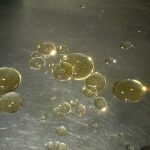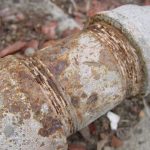Water conservation has become an increasingly pressing issue in Los Angeles, a city known for its semi-arid climate and growing population. With California experiencing prolonged periods of drought and water scarcity, it is crucial for residents to adopt eco-friendly practices that can help mitigate water waste and promote sustainable living. One area where significant water savings can be achieved is through the implementation of eco-friendly plumbing solutions. Plumbing systems play a vital role in our daily lives, facilitating the distribution and utilization of water for various purposes, including drinking, bathing, cooking, and cleaning. However, outdated or inefficient plumbing fixtures can lead to excessive water consumption, resulting in higher utility bills and increased strain on local water resources. By embracing eco-friendly plumbing practices, homeowners and businesses in Los Angeles can significantly reduce their water footprint while contributing to the broader efforts of water conservation in the region. This not only benefits the environment but also yields long-term cost savings and promotes a more sustainable lifestyle.
Practical Tips for Eco-Friendly Plumbing Practices
To help Los Angeles residents conserve water and embrace eco friendly plumbing solutions, here are some practical tips:
Install Low-Flow Fixtures:
Low-flow fixtures, such as faucets, showerheads, and toilets, are designed to reduce water consumption by limiting the flow rate without compromising performance. By installing low-flow fixtures in your home, you can significantly decrease water usage while still enjoying adequate water pressure and functionality. For example, low-flow showerheads can reduce water usage by up to 50% compared to traditional models, while low-flow toilets use less water per flush, saving gallons of water with each use. These fixtures are relatively easy to install and can make a noticeable difference in water savings over time.
Fix Leaks Promptly
Even small leaks in plumbing fixtures or pipes can waste significant amounts of water over time. Therefore, it’s essential to address leaks promptly to prevent water waste and conserve resources. Inspect your home regularly for any signs of leaks, such as dripping faucets, running toilets, or moisture stains on walls or ceilings. If you detect a leak, take immediate action to repair it or contact a licensed plumber for assistance. By fixing leaks promptly, you can prevent water loss and reduce your water bill while contributing to water conservation efforts in Los Angeles.
Upgrade to High-Efficiency Appliances
Replacing old, inefficient appliances with high-efficiency models can significantly reduce water usage and lower utility costs. Look for appliances that carry the ENERGY STAR label, indicating they meet strict energy efficiency criteria set by the Environmental Protection Agency (EPA). For example, ENERGY STAR-certified washing machines use less water and energy per cycle compared to conventional models, saving both resources and money over time. Similarly, consider upgrading to a high-efficiency dishwasher, which uses less water and energy while still providing excellent cleaning performance. Investing in high-efficiency appliances is a sustainable choice that benefits both the environment and your household budget.
Optimize Irrigation Systems
Efficient irrigation is essential for maintaining landscapes in Los Angeles while conserving water. Consider upgrading your irrigation system to a smart controller or drip irrigation system, which deliver water directly to the root zone of plants, minimizing evaporation and runoff. Smart controllers use weather data and soil moisture sensors to adjust watering schedules automatically based on environmental conditions, ensuring optimal water usage. Additionally, mulching around plants and using native, drought-tolerant vegetation can reduce water needs and promote a thriving landscape with minimal irrigation. By optimizing your irrigation system, you can conserve water and create a sustainable outdoor environment that enhances the beauty of your property.
Collect Rainwater for Outdoor Use
Harvesting rainwater is a sustainable practice that can help offset the need for municipal water supplies in outdoor landscaping. Install rain barrels or cisterns to capture rainwater from your roof and gutters, then use it to irrigate gardens, lawns, and landscaping. Rainwater harvesting reduces stormwater runoff, minimizes erosion, and conserves potable water resources for essential indoor uses. Additionally, incorporating rain gardens or permeable paving materials into your landscape design can further enhance water infiltration and reduce runoff, contributing to sustainable water management practices in Los Angeles.
Practice Water-Efficient Gardening
Opt for water-efficient gardening practices to minimize water usage while maintaining a beautiful and sustainable landscape. Choose drought-tolerant plants native to the Los Angeles region, which require less water once established and are better adapted to local climate conditions. Group plants with similar water needs together and mulch around them to retain soil moisture and suppress weeds. Consider using xeriscaping principles, such as strategic plant placement, soil amendment, and efficient irrigation, to create a low-maintenance and water-efficient garden that thrives in arid environments. By adopting water-efficient gardening techniques, you can conserve water, reduce maintenance requirements, and support biodiversity in your outdoor space.
Implement Greywater Recycling Systems
Greywater recycling systems capture and treat water from sources such as sinks, showers, and washing machines for reuse in non-potable applications, such as landscape irrigation or toilet flushing. Installing a greywater recycling system in your home allows you to divert wastewater from going down the drain and instead repurpose it for beneficial uses, reducing demand on freshwater resources. Greywater recycling systems can be relatively simple, such as diverting water from a washing machine to outdoor plants, or more sophisticated, involving filtration and treatment systems to ensure water quality. By recycling greywater, you can conserve water, reduce wastewater discharge, and contribute to a more sustainable water management approach in Los Angeles.
Use Water-Saving Practices
Incorporate water-saving practices into your daily routine to minimize water waste and promote conservation. Simple actions such as turning off the faucet while brushing teeth, taking shorter showers, and only running full loads in the dishwasher or washing machine can add up to significant water savings over time. Additionally, consider using a broom instead of a hose to clean outdoor surfaces, collecting and reusing water from indoor activities for outdoor tasks, and using a shut-off nozzle on garden hoses to control water flow. By being mindful of your water usage habits and adopting water-saving practices, you can reduce your ecological footprint and contribute to a more sustainable water future.
Educate and Raise Awareness
Spread awareness about the importance of water conservation and eco-friendly plumbing practices among your friends, family, and community members. Share information about simple water-saving tips and techniques, such as fixing leaks, installing water-efficient fixtures, and practicing mindful water use habits. Encourage others to take action by participating in community events, workshops, or educational programs focused on water conservation and sustainable living. By raising awareness and inspiring collective action, you can amplify the impact of water conservation efforts and foster a culture of environmental stewardship.
Utilize High-Efficiency Dishwashers
Upgrading to a high-efficiency dishwasher can lead to significant water savings compared to handwashing dishes. ENERGY STAR-certified dishwashers use less water and energy per cycle while still providing efficient cleaning performance. Additionally, avoid pre-rinsing dishes before loading them into the dishwasher, as modern appliances are designed to effectively remove food debris without the need for excessive water usage. By using a high-efficiency dishwasher and adopting water-saving practices, you can conserve water and reduce your household’s environmental impact.
Install Aerators on Faucets
Aerators are simple devices that can be installed on faucets to reduce water usage without sacrificing water pressure. These devices work by mixing air into the water stream, creating a steady flow while using less water overall. Installing aerators on faucets throughout your home can lead to significant water savings over time, particularly in areas where water is frequently used, such as the kitchen and bathroom sinks. Aerators are inexpensive and easy to install, making them a cost-effective way to promote water conservation in your household.
Practice Smart Watering Techniques
When irrigating outdoor landscapes, it’s essential to practice smart watering techniques to minimize water waste and promote healthy plant growth. Water early in the morning or late in the evening to reduce evaporation and maximize absorption by plants’ roots. Adjust irrigation schedules based on weather conditions, reducing watering frequency during periods of rainfall or cooler temperatures. Additionally, use a rain sensor or weather-based irrigation controller to automatically adjust watering schedules based on environmental conditions. By adopting smart watering techniques, you can optimize water usage in your landscape while supporting plant health and vitality.
Monitor Water Usage with Smart Technology
Take advantage of smart technology to monitor and manage water usage in your home more efficiently. Install smart water meters or monitoring systems that provide real-time data on water consumption, allowing you to identify trends, detect leaks, and adjust usage habits accordingly. Some smart devices can even automatically shut off water supply in the event of a leak or abnormal usage, helping to prevent water damage and conserve water resources. By using smart technology to track and manage water usage, you can gain insight into your household’s water consumption patterns and make informed decisions to reduce waste and promote conservation.
Implementing eco friendly plumbing solutions is essential for conserving water and promoting sustainable living in Los Angeles. By adopting water-saving measures such as installing low-flow fixtures, fixing leaks promptly, and utilizing high-efficiency appliances, residents can significantly reduce water consumption and contribute to the preservation of precious water resources. Additionally, supporting policy initiatives, raising awareness, and embracing technological advancements in water management further enhance conservation efforts. Through collective action and individual responsibility, residents of Los Angeles can create a more resilient and water-efficient city, ensuring a sustainable future for generations to come.





